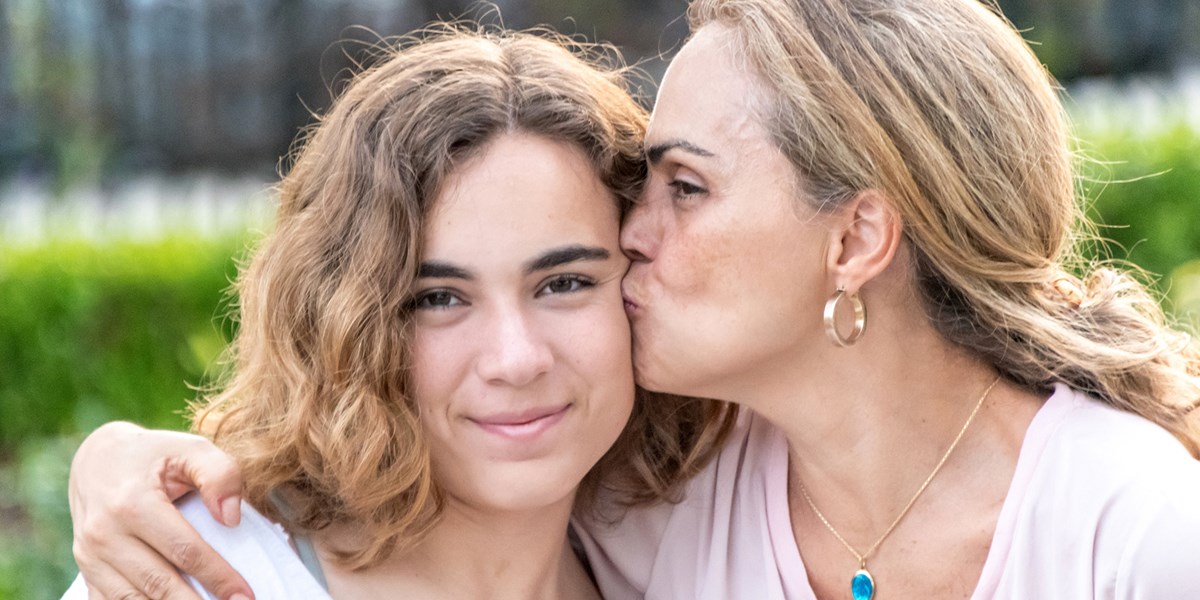What to Tell Your Donor-Conceived Child and When?

Long before RMA Long Island IVF brought Long Island its first IVF baby (and later its first baby conceived using donor eggs), doctors helped couples with male factor infertility or other related issues conceive using donor sperm. The process, originally called “Artificial Insemination”, is more widely-known today as Intrauterine Insemination, or IUI.
While there were just over two years between the birth of America’s first IVF baby in December, 1981 and the birth of America’s first donor egg baby in February, 1984, sperm donation goes back much further.
Fast forward to the present day where accessible assisted reproductive technology, or ART, enables nearly everyone to pursue having a baby that is biologically-linked to one, if not both, partners. While ART makes dreams come true, it also presents parents with a new responsibility – – should they tell their child they were donor-conceived? If so, when and how should they be told?
An overwhelming amount of research studies and support group forums of now-grown donor-conceived children strongly encourage parents not only to tell their children about their donor conception status, but to begin doing so at a young age. The Donor Conception Network (DCN) recommends parents start telling children under the age of five and also offers “Telling and Talking booklets” for various age groups to help parents share their stories in age-appropriate ways.[i]
Single and LGBT parents may be forced to explain their child’s parentage as early as pre-K – – which is when school assignments and crafts typically involve describing their family may spark questions about differences between their family composition and that of other kids in the class. Later on, biology or health class will bring specific conception-related questions if they haven’t arisen sooner.Understandably, parents can be anxious about telling a young child too much information that they can’t process, or telling a grown adult child and explaining why it took so long. So, it’s generally advised to start young and slow when attention spans and conversations are short and when trusting young minds readily absorb stories about life and family.
CreatingaFamily.com offers 10 great tips on getting started telling your child, including these suggested, helpful four “basic ingredients” of the story to make it as simple as possible for you to begin:
- “We wanted you very, very much.
- We had trouble getting pregnant.
- We got help from a doctor, and when that didn’t work, we got more help because when you have trouble you get help and sometimes you have to try a lot of different things before it gets better.
- We were so, so happy when you finally came.”[ii]
Here are some of the main arguments in favor of telling your child they were donor-conceived:
- Everyone is entitled to know their true medical history and it’s important throughout life for medical diagnosis and treatment.
- Knowing will reduce anxiety over genetically-linked family diseases of the non-biological parent and their side of the family.
- Relatives and others can intentionally or unintentionally tell your child the secret at any time.
- DNA testing is an extreme threat to attempted secrecy about genetics within immediate and extended families. It enables donors and donor-conceived children to find biological relatives.
- Children deserve to know they are donor-conceived so they can take genetic testing to avoid unknowingly marrying a half-sibling.
- Knowing helps children explain differences in looks, traits, interests, and talents between them and the non-biological parent.[iii]
The Co-Founder and Director of the DSR stresses that “Telling is only the first step in creating healthy and happy donor families”. Just because the disclosure has been made, “doesn’t mean they will have peace with not knowing about one half of their identity, medical background and close relatives.” Parents should “acknowledge, honor, and validate any curiosity” and “support any desire that a donor offspring has to search for, and to connect with these [unknown genetic] relatives”.[iv]
The overwhelming consensus leans toward opening early disclosure of donor conception status on an age-appropriate basis. This respects the child’s right to the basic truth of who they are and how they came into the world – – a story that can be told with love and expanded over time and underscores the determination of the parents and the obstacles they faced and overcame. Proponents of telling donor-conceived children their origins argue that we need only look back on the experiences of children who weren't told they were adopted but found out eventually. Back then, relatives often spilled the beans. Today, inexpensive and readily available DNA testing– – in the hands of either donors or donor-conceived adults – – can expose the family secret at any time.It may be difficult to start that first conversation, but the consensus is that it’s easier the earlier you begin. So, if you have decided to tell your child about their donor conception, RMA Long Island IVF can refer you to specialists and counselors who can help you.
[i] https://www.dcnetwork.org/telling-your-child
[ii] https://creatingafamily.org/infertility-category/top-ten-tips-for-telling-children-about-donor-egg-sperm-and-embryo/
[iii] https://www.dcnetwork.org/telling-your-child
[iv] https://www.huffpost.com/entry/sperm-egg-donation-telling-is-the-first-step_b_58c2c58fe4b0c3276fb783eb
